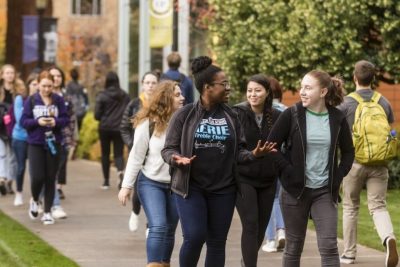
What is the legacy of black universities in Florida

The legacy of black universities in Florida is a rich tapestry woven from the struggles, triumphs, and continued growth of institutions that have shaped not only the educational landscape of the state but also the cultural and societal framework of African American communities. These institutions, often referred to as Florida historically black colleges, have been pillars of hope and knowledge for generations of students who sought to overcome systemic barriers and achieve excellence in various fields.
As we explore the legacy of African American colleges in Florida, it is essential to understand their historical context, the motivations behind their founding, and the ongoing challenges they face in today's educational landscape. From the initial creation of these institutions to their contributions to civil rights and culture, the story of black universities in Florida is one of resilience and empowerment.
- Historical Context of Black Universities in Florida
- The Founding of HBCUs and Their Purpose
- The Role of Influential Leaders: Washington vs. Du Bois
- Legal Milestones: Brown v. Board of Education and the Civil Rights Act
- The Evolution of Student Demographics at HBCUs
- The Impact of Black Universities on Florida's Education Landscape
- Contributions to African American Culture and Identity
- Challenges Facing HBCUs in the Modern Era
- The Future of Black Universities in Florida
- Conclusion: The Ongoing Legacy of HBCUs
Historical Context of Black Universities in Florida
The emergence of black universities in Florida can be traced back to the post-Civil War era, a time when educational opportunities for African Americans were severely restricted. Many newly freed slaves recognized that education was a pathway to empowerment, leading to the establishment of schools and colleges aimed at serving their communities. These institutions were often founded by religious organizations and altruistic white individuals who believed in education for all, though many held paternalistic views about Black capacity.
In Florida, several Florida historically black colleges were established to provide an education to Black students during a time of oppression and segregation. These institutions not only focused on academic development but also aimed to instill a sense of pride and identity within their communities. The first of these institutions, the Florida Agricultural and Mechanical University (FAMU), was founded in 1887 and has since become a vital component of Florida's higher education system.
The Founding of HBCUs and Their Purpose
The founding of black universities in Florida served a dual purpose: to educate and to empower. HBCUs were created in response to the lack of access to quality education for Black individuals, reflecting a critical need for self-determination within African American communities. The mission of these institutions extended beyond academic instruction, focusing on cultivating leadership, social justice, and an understanding of cultural heritage among Black students.
Initially, these colleges offered vocational training, which was a widespread belief at the time, as many leaders of the era, including Booker T. Washington, advocated for practical skills over academic pursuits. However, this approach was not without controversy, as many argued that higher education was necessary for true leadership and the advancement of the African American community.
The Role of Influential Leaders: Washington vs. Du Bois
The debate over the direction of education for African Americans was significantly shaped by two prominent figures: Booker T. Washington and W.E.B. Du Bois. Washington, who founded the Tuskegee Institute, championed a vocational approach, emphasizing the importance of agricultural and industrial education. He believed that through skilled trades, African Americans could gain economic independence and gradually earn the respect of white society.
Conversely, W.E.B. Du Bois argued for a more comprehensive education that included liberal arts and higher academia as crucial for developing not just a skilled workforce, but also the leaders who would challenge social injustices and fight for civil rights. This ideological conflict reflected the broader struggles within the African American community regarding education and progress, influencing the curriculum and vision of many Florida historically black colleges.
Legal Milestones: Brown v. Board of Education and the Civil Rights Act
As the 20th century unfolded, significant legal milestones began to shape the landscape of education for African Americans. The landmark Supreme Court case, Brown v. Board of Education in 1954, ruled that racial segregation in public schools was unconstitutional. This decision marked a pivotal moment in the ongoing fight for equality in education, compelling many states, including Florida, to take steps towards integration.
The Civil Rights Act of 1964 further solidified these efforts by prohibiting discrimination based on race, color, religion, sex, or national origin in any program or activity receiving federal financial assistance. While these legal advancements were crucial in promoting access to education for African Americans, the integration process was often met with resistance, and only gradually did meaningful changes occur in educational institutions.
The Evolution of Student Demographics at HBCUs
Over the years, the demographics of students attending African American colleges in Florida have evolved. While these institutions primarily served Black students during the early years, many have now embraced a more diverse population. This diversification is a testament to the growing recognition of the quality of education that HBCUs provide and their commitment to fostering inclusive academic environments.
Today, many Florida historically black colleges celebrate a mix of racial and ethnic backgrounds among their students, enriching the educational experience and promoting cross-cultural understanding. As African American students increasingly pursue higher education across a variety of institutions, the continued relevance and appeal of HBCUs remain significant.
The Impact of Black Universities on Florida's Education Landscape
The impact of black universities in Florida on the state’s educational landscape cannot be understated. HBCUs have been instrumental in producing a substantial number of Black professionals across various fields, including education, medicine, law, and business. Their contributions have had long-lasting effects not only on individual lives but also on the broader economic and social development of Florida.
Moreover, these institutions serve as cultural hubs, fostering a sense of community and belonging among African American students and alumni. They play a crucial role in preserving and promoting African American history and culture through various programs, events, and outreach initiatives, ultimately enhancing the educational experience for students, regardless of their backgrounds.
Contributions to African American Culture and Identity
Beyond academic achievement, African American colleges in Florida contribute significantly to the cultural and social identity of the Black community in the state. These institutions often host events and programs that celebrate Black history, arts, and traditions, ensuring that students have a deep understanding of their heritage.
Through various organizations, clubs, and initiatives, HBCUs promote leadership and activism, encouraging students to engage with issues affecting their communities. This sense of purpose is essential for fostering a strong cultural identity and a commitment to social justice among students, equipping them to effect change in their communities.
Challenges Facing HBCUs in the Modern Era
Despite their many accomplishments, black universities in Florida face significant challenges in the modern era. Funding disparities remain a pressing issue, as HBCUs often struggle to secure adequate financial resources compared to predominantly white institutions. This funding gap impacts their ability to provide competitive salaries for faculty, maintain facilities, and offer scholarships to students.
Moreover, changing demographics and public perceptions about the relevance of HBCUs further complicate their sustainability. The increasing number of African American students attending predominantly white institutions poses additional challenges for HBCUs as they seek to maintain enrollment and relevance in today’s educational landscape.
The Future of Black Universities in Florida
Despite the challenges, the future of Florida historically black colleges remains promising. Many institutions are adapting to the current educational climate by enhancing their academic programs, leveraging technology, and building partnerships with local communities and businesses. These strategies aim to improve student retention and success while attracting a more diverse student body.
Furthermore, HBCUs are uniquely positioned to continue their legacy of fostering African American leadership and cultural identity, which is increasingly important in today's society. As issues of racial equity, social justice, and community empowerment gain momentum, the role of HBCUs may become even more critical in addressing these challenges.
Conclusion: The Ongoing Legacy of HBCUs
The legacy of black universities in Florida is one of resilience, empowerment, and cultural pride. These institutions have played an essential role in providing educational opportunities and fostering leadership within the African American community. Their contributions extend far beyond academics, shaping the cultural identity of generations and serving as vital agents of social change.
As we look to the future, it is crucial to recognize the importance of Florida historically black colleges in continuing the fight for equity and excellence in education. Their ongoing legacy will undoubtedly influence the lives of many students and the broader Florida community for years to come, reaffirming their status as essential pillars of hope and knowledge.
Did you find this article helpful? What is the legacy of black universities in Florida See more here Education.
Leave a Reply






Related posts